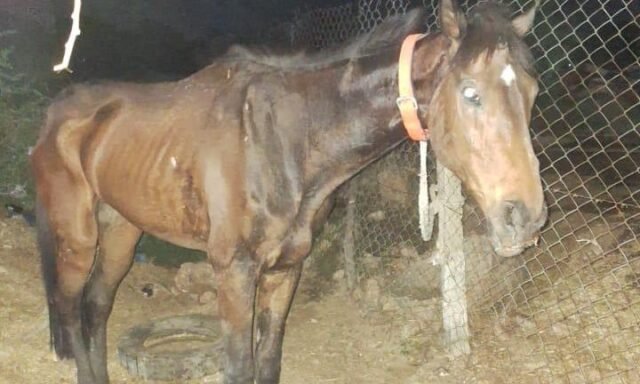Hyderabad: A Hyderabad-based self-styled technology entrepreneur Paladugu Suresh Kumar, and his alleged web of companies, have emerged as kingpins in a racing scam that left scores of horses dead or wounded, languishing in a makeshift stable in Jabalpur, Madhya Pradesh.
Their ribs standing out, hips jutting beneath sagging skin, and deep wounds left to rot without care, these once-prized race horses were found starved, abandoned and untreated. The root of the alleged racing scam is a betting app, Tropang Karerista, which operated outside the regulatory oversight of Indian turf authorities and yet broadcast the races held here.
Inquiries by Deccan Chronicle revealed that Hitha Net India Pvt. Ltd., which owned these horses and had links with Suresh Kumar’s business partners, abruptly closed operations when the betting app landed in trouble in the Philippines in October last year. It left the race horses in the lurch.
“We gave our premises on rent to Suresh. The moment we found that something was going wrong, we asked him to vacate giving 15 days notice. We are in no way connected to his activities, and I am personally working with authorities concerned to help the horses,” said Hyderabad Race Club chairman R. Surender Reddy.
A total of 154 horses were kept at the Hyderabad Race Club. While the whereabouts of nearly 100 horses were not known, 57 were suddenly moved out in early May to a private property owned by Sachin Tiwari of Jabalpur.
The cruelty to animals came to the fore when Lavanya Shekhawat, a polo player from Rajasthan and a well-known figure in the horse lovers community, flagged the abuse in a complaint with PETA India. “As per my information, out of 150 horses, six were sold to private trainers, some died, and over 90 are missing,” she told Deccan Chronicle. Soon after her complaint, the horses were moved to Jabalpur.
The Indigenous Horse Society got involved and wrote a letter to the Animal Welfare Board in April explaining the plight of animals and violation of the Prevention of Cruelty to Animals Act. According to the organisation, the horses were originally bought from breeders in Rajasthan for use in races in Hyderabad.
“They moved horses to cover up their tracks,” alleged Niall Sadh, a producer of horse racing broadcasts who visited the farm in Jabalpur. “When I went to Jabalpur, I saw horses in cow sheds, tied up like cattle, untreated and dying one after another. The Hyderabad Race Club also owes an explanation as the horses were subjected to cruelty there also, he added.
The stable remained inaccessible, and thanks to the intervention of noted activist Maneka Gandhi, district authorities responded by sending medical teams. Medical reports available with Deccan Chronicle establish the denial of medical care to the horses.
According to a veterinary report dated May 12 by Dr Prakash Mehra, “Over 10 horses require immediate medical intervention. One has a deep neck infection, untreated for 15 days.”
The report further indicated that meloxicam, meant for cattle, was given as pain relief, which could worsen the condition and treatment is delayed, which is medically unjustified, Dr Mehra pointed out. He also warned of widespread skin infections, poor hygiene, and lack of farriery.
On May 23, a second vet, Dr Anil Lahane, assessed the surviving 49 horses and reported hoof wall separation in most animals, suspected cases of Glanders. He recommended vaccination and proper feed.
The death toll and visuals triggered a delayed but growing response from the horse-owning and racing community. Ameeta Mehra, who heads the National Horse Breeding Society, said, “We sent feed and medical supplies. My team unshackled the horses, cleaned their wounds.”
When contacted, Paladugu said he did not own these horses and had no financial connection with Hitha Net. “I am a technology entrepreneur providing software and streaming services to racing clubs in India and clients in the Philippines. I was targeted because I work with multiple race clubs and have been promoting a new concept,” he said.
He said that he knew Sachin Tiwari well and was even aware that Hitha Net had sent these horses to Jabalpur. He said the horses were retired Marwari horses, and most were tested negative for infection, while the results of the remaining were pending.








